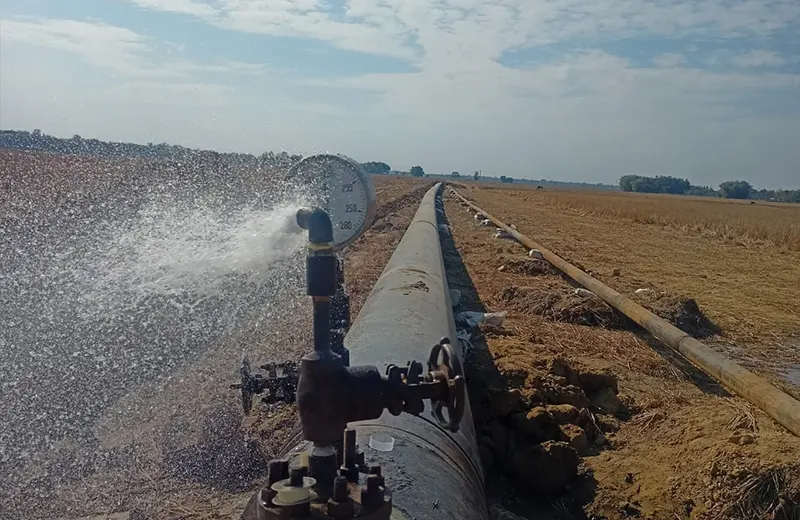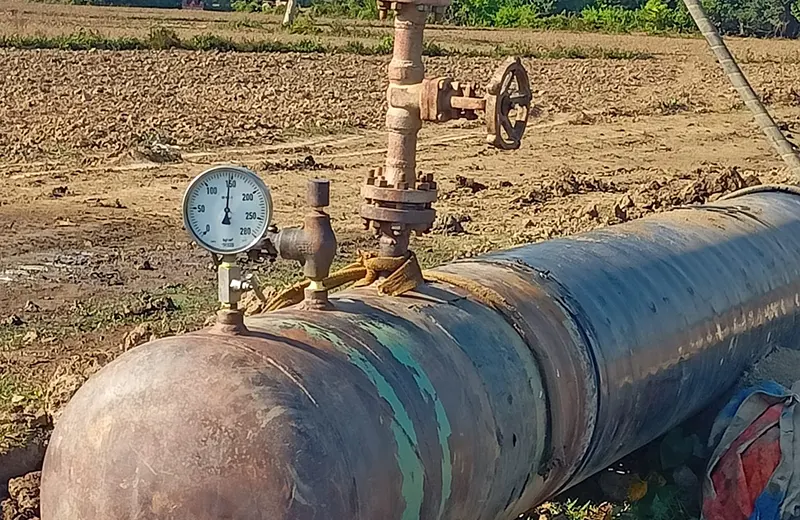Menu
Menu
Pipeline testing and commissioning is a process of verifying that a newly constructed or modified pipeline system is safe, reliable, and fully operational. The process typically involves several stages, including pre-commissioning checks, testing, and post-commissioning monitoring.


We are always available to respond your messages. Just drop a line or call us.
Before any testing begins, the pipeline system should be checked for compliance with all relevant codes and standards. The system should also be checked for completeness and readiness for testing.
This is the most common type of pipeline testing, which involves filling the pipeline system with water and pressurizing it to test for leaks, strength, and integrity. Hydrostatic testing may be done in sections, and each section should be isolated and tested separately.
This type of testing involves filling the pipeline system with compressed air or gas and pressurizing it to test for leaks and strength. Pneumatic testing is typically used for high-pressure pipelines or those carrying gas.
After the pipeline system has been pressurized, it should be checked for leaks using various methods, such as visual inspections, acoustic monitoring, or tracer gas detection.
Electrical testing may be required for certain pipeline systems, such as those with cathodic protection or electrical heating. This type of testing involves checking for proper grounding, continuity, and insulation.
Once all testing is complete, the pipeline system should be commissioned, which involves putting it into service and monitoring its operation to ensure it meets all safety and performance requirements.
After the pipeline system is commissioned, it should be monitored on an ongoing basis to ensure continued safety and performance. This may involve periodic inspections, testing, and maintenance.

Ace Pipeline Contracts was established in 1989 and has had its roots in Mumbai. We have grown over the years in our ability to execute diverse contracts across the nation.